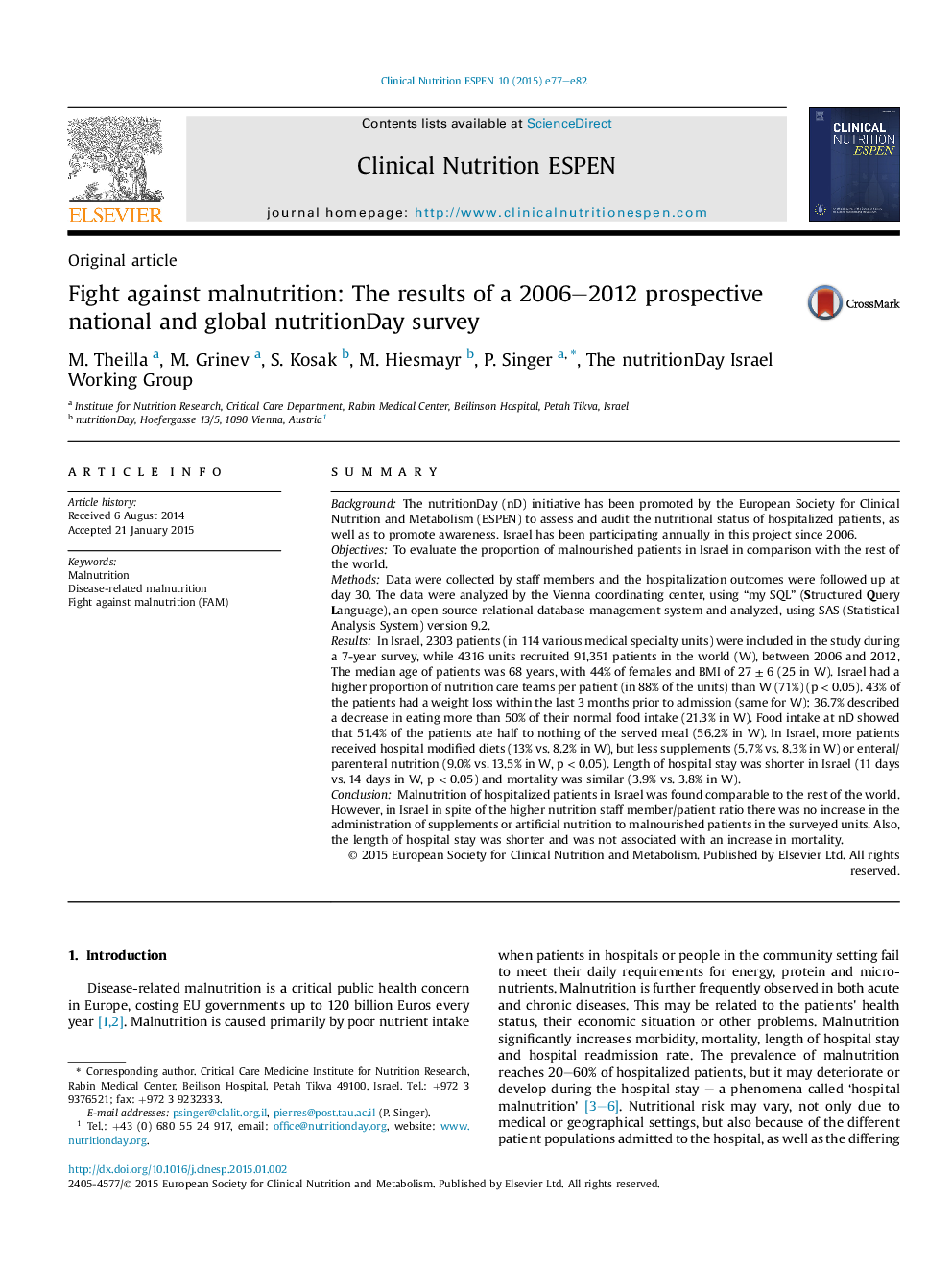| کد مقاله | کد نشریه | سال انتشار | مقاله انگلیسی | نسخه تمام متن |
|---|---|---|---|---|
| 2685906 | 1142905 | 2015 | 6 صفحه PDF | دانلود رایگان |
SummaryBackgroundThe nutritionDay (nD) initiative has been promoted by the European Society for Clinical Nutrition and Metabolism (ESPEN) to assess and audit the nutritional status of hospitalized patients, as well as to promote awareness. Israel has been participating annually in this project since 2006.ObjectivesTo evaluate the proportion of malnourished patients in Israel in comparison with the rest of the world.MethodsData were collected by staff members and the hospitalization outcomes were followed up at day 30. The data were analyzed by the Vienna coordinating center, using “my SQL” (Structured Query Language), an open source relational database management system and analyzed, using SAS (Statistical Analysis System) version 9.2.ResultsIn Israel, 2303 patients (in 114 various medical specialty units) were included in the study during a 7-year survey, while 4316 units recruited 91,351 patients in the world (W), between 2006 and 2012, The median age of patients was 68 years, with 44% of females and BMI of 27 ± 6 (25 in W). Israel had a higher proportion of nutrition care teams per patient (in 88% of the units) than W (71%) (p < 0.05). 43% of the patients had a weight loss within the last 3 months prior to admission (same for W); 36.7% described a decrease in eating more than 50% of their normal food intake (21.3% in W). Food intake at nD showed that 51.4% of the patients ate half to nothing of the served meal (56.2% in W). In Israel, more patients received hospital modified diets (13% vs. 8.2% in W), but less supplements (5.7% vs. 8.3% in W) or enteral/parenteral nutrition (9.0% vs. 13.5% in W, p < 0.05). Length of hospital stay was shorter in Israel (11 days vs. 14 days in W, p < 0.05) and mortality was similar (3.9% vs. 3.8% in W).ConclusionMalnutrition of hospitalized patients in Israel was found comparable to the rest of the world. However, in Israel in spite of the higher nutrition staff member/patient ratio there was no increase in the administration of supplements or artificial nutrition to malnourished patients in the surveyed units. Also, the length of hospital stay was shorter and was not associated with an increase in mortality.
Journal: Clinical Nutrition ESPEN - Volume 10, Issue 2, April 2015, Pages e77–e82
